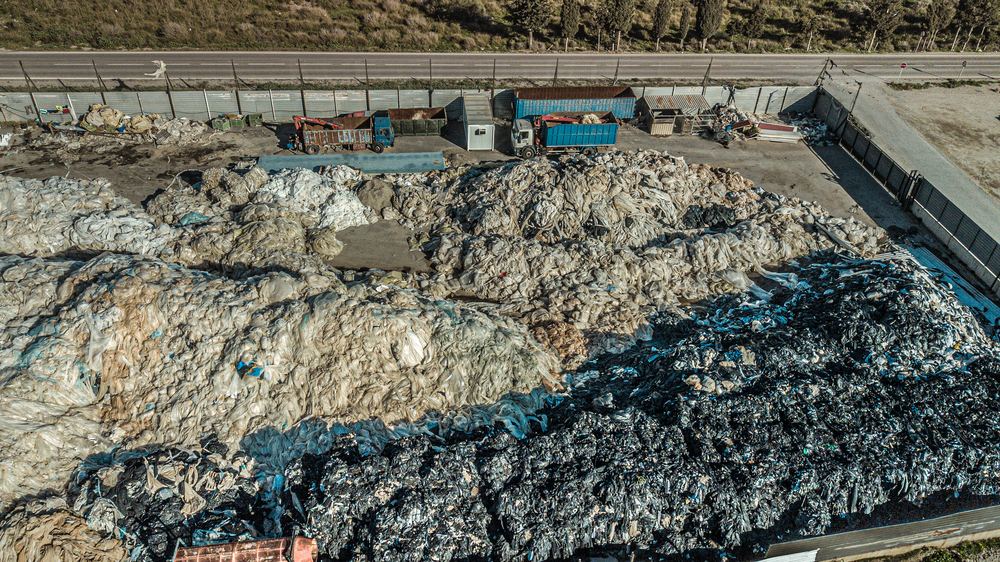AGROMATTER: Establishment of a Cervera network for the development of highly sustainable technical materials derived from by-products or waste from the agricultural industry and natural area conservation operations
The AGROMMATER project, in which ITENE participates within a Cervera network alongside four other technology centres complementary in the agricultural, biotechnological, and materials science fields, aims to establish a network of Technology Centres of scientific-technical excellence in the area of the circular economy applied to the development of bio-based materials for technical applications, thereby achieving positioning as reference R&D centres. The project focuses on studying the valorisation of waste and by-products from the agricultural sector to develop new materials with a low environmental impact, easy recyclability, and a defined life cycle for high value-added applications.
Context
The agricultural sector generates waste in its production processes, making it necessary to offer high value-added valorisation solutions that positively impact the bottom line of companies in this sector.
Moreover, this sector—like the rest of the economy—must also incorporate European requirements on circular economy and environmental sustainability into its products and processes. This can be achieved through the extraction of valuable compounds from the waste generated using sustainable technologies, for use both in agri-food matrices and in the manufacture of new materials for sectors such as packaging, textiles, cosmetics, construction, and automotive, among others.
Summary and objetives
The AGROMATTER project focuses on seeking solutions to maximise the valorisation options for residues such as by-products from agriculture and other types of plant waste, by exploring applications in sectors including textiles, packaging, automotive, construction, and the agricultural sector itself.
For this purpose, the project will pursue two lines of work, each with a set of challenges.
-
Extraction, synthesis, and transformation of agricultural residues into high value-added biomaterials:
-
Optimisation of sustainable extraction processes for compounds of interest to develop materials with lower environmental impact and biodegradable, starting from agri-food by-products.
-
Scale-up of extraction processes to industrial level, as a solution to current waste management in the agri-food industry.
-
Development of an efficient logistics system tailored to different types of agricultural residues, depending on their chemical nature, stability, presentation format, and the intended final application of the residue.
-
Optimisation of the process for obtaining AGROMATTER textile fibre.
-
Optimisation of the transformation processes of monomers and other biocompounds to obtain bioplastics suitable for fibre melt spinning, cast extrusion and blown-film extrusion, and injection/thermoforming of packaging.
-
Development of solutions for the target markets:
-
Optimisation of the application process of AGROMATTER textile fibre in the development of materials such as paper, textiles, and composites.
-
Improvement of fire performance in bio-based materials derived from the revalorisation of plant organic matter.
-
Optimisation of the manufacturing process for bio-based plastic materials or plastics reinforced with first- or second-generation agricultural residues, with applications in automotive, packaging, and the food industry.
-
Optimisation of the process for incorporating active substances with functional characteristics in the functionalisation of AGROMATTER materials.
Consortium
This project is being carried out by the Cervera Agromatter Network, made up of five technology centres united with the aim of establishing a Network of Technology Centres of Excellence in the field of the circular economy applied to the development of bio-based materials for technical applications.
-
Asociación de Investigación de la Industria Textil (AITEX) — (coordinator)
-
Fundación ANDALTEC I+D+i (ANDALTEC R&D&I Foundation)
-
Asociación Empresarial Centro Tecnológico Nacional Agroalimentario “Extremadura” (CTAEX) (National Agri-Food Technology Centre of Extremadura)
-
Asociación Empresarial de Investigación Centro Tecnológico Nacional de la Conserva (CTC) (National Technological Centre for the Canning Industry)
-
Centro Tecnológico ITENE (ITENE Research Centre)
ITENE’s rol in the project
Within AGROMATTER, ITENE’s strategic objective is to strengthen R&D capabilities in processes and the use of by-products and residues of agricultural or agro-industrial origin for application primarily in the packaging of food and cosmetics, specifically to:
-
Increase the level of knowledge in the treatment of different types of raw materials from lignocellulosic residues to obtain high value-added additives such as nanocellulose or microfibrillated cellulose.
-
Increase the level of knowledge regarding physical and chemical extraction processes for technologically valuable components from raw materials derived from residues, in order to obtain chemical building blocks, bioactive substances, and monomers for use in developing packaging materials with advanced, improved properties.
-
Carry out integrated valorisation and leverage fermentation residues to obtain biofertilisers for the agri-industrial sector, as well as to obtain bioadhesives for packaging applications.
-
Develop new syntheses of biopolymers from materials extracted using the various technologies developed within the network.
-
Increase the level of knowledge regarding the production of compounds or blends derived from the biopolymers produced, and validate—together with the network partners—the processability of the different biopolymers and formulations in the most common packaging manufacturing processes (cast extrusion, extrusion-blow moulding, injection moulding, and thermoforming).
-
Increase the level of knowledge in developing tests and procedures for the proper validation of the properties of the new packaging materials, as well as their biodegradability and compostability.
Results
The project has achieved sustainable food trays. Specifically, materials have been obtained through the valorisation of agricultural by-products and residues, including sustainable trays for fresh and dry foods—such as meat—compounds intended for the cosmetics industry, and a biofertiliser.
ITENE’s core work has consisted of developing additives such as nanocelluloses and extracting valuable components for advanced materials. It has also focused on waste valorisation via fermentation processes to obtain biofertilisers and polymer precursors, the synthesis of biopolymers and the validation of their processability and properties, and testing to verify the biodegradability and compostability of the new packaging materials.






